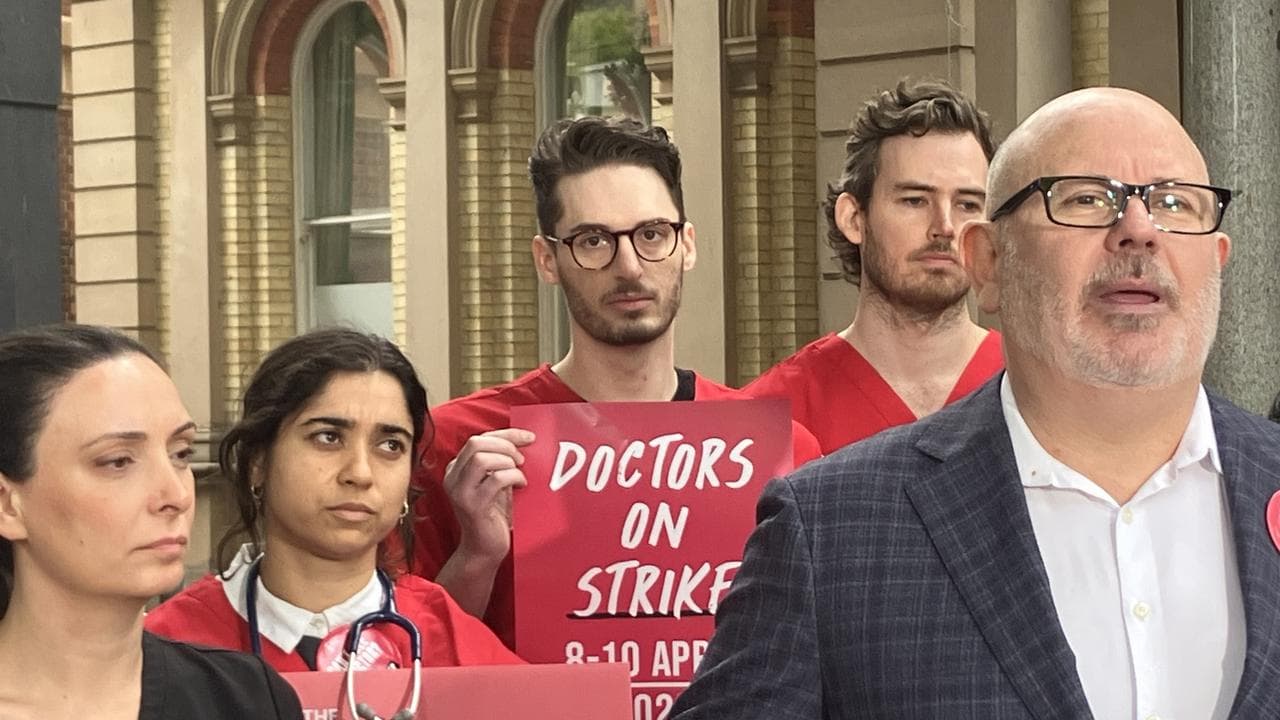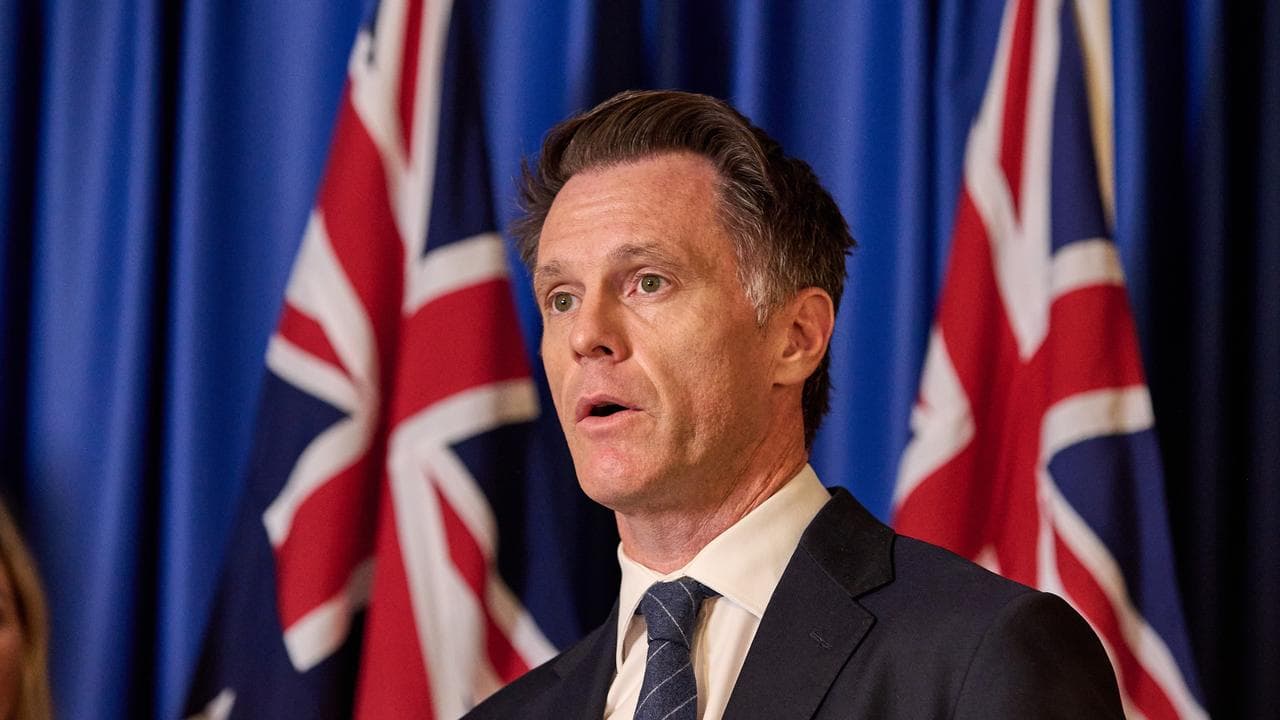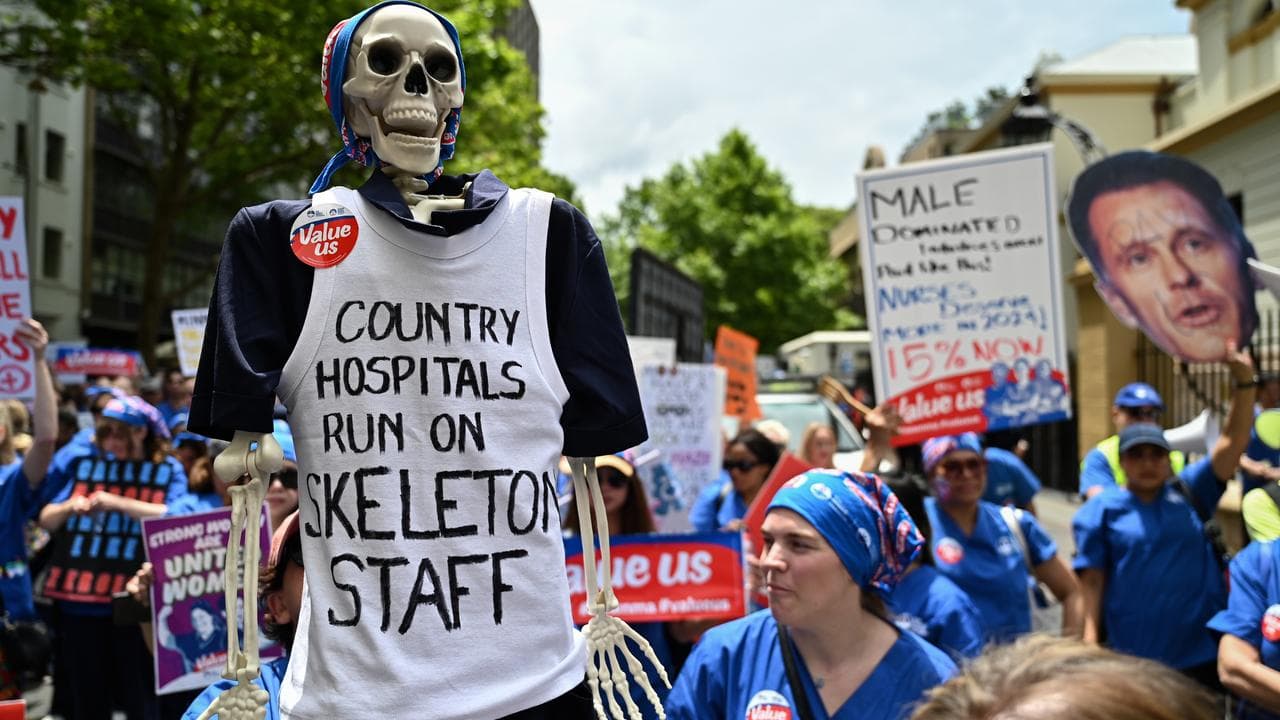
Surgeries are being cancelled as the public are warned about under-staffed emergency departments ahead of a rare, unauthorised multi-day health worker strike.
Claims that the first doctors' strike in NSW since the 1990s, beginning Tuesday, would not impact patient care were dismissed by the state's health minister on Monday.
"You simply can't have thousands of doctors threatening to walk off the job out of hospitals without having an impact," Ryan Park told reporters.
"We've already started cancelling surgery ... our emergency departments are going to be running on reduced staff."
Premier Chris Minns said doctors could face consequences for defying the industrial umpire's orders to not strike.
Medical indemnity insurers have warned doctors may face disciplinary action including reports to regulators.
"It's dangerous for patients and it's risky for doctors," Mr Minns said.
New graduates up to specialists are expected to walk off the job for three days as part of a campaign to have NSW match interstate wages and conditions.
First-year doctors earn about $38 an hour but can collect $45 per hour in Queensland, before considering penalty rates and extra leave.
The union says action is necessary to address "critical doctor shortages" and ensure everyone can see a doctor when they need one.
But NSW Health deputy secretary Matthew Daly lamented "haphazard" information from the union, saying he has become less confident about the system's ability to cope.
People not experiencing an emergency should steer clear of emergency departments and seek care elsewhere, he said.
"It's nigh impossible for us to make a call on how high the risk is going to be elevated," he said.

Intensive care specialist Behny Samadi said staffing would be maintained similar to public holiday levels.
"If that's not safe, then I think the ministry needs to think about why that is ... not safe and fix that problem," Dr Samadi said.
She said pay negotiations had gone nowhere due to bullying and strong-arm tactics such as warnings that doctors could be deregistered.
Her colleagues are seeking an immediate 30-per-cent pay rise and conditions such as a guaranteed 10-hour break between shifts.
The government has offered three per cent backpay to July if the strike is called off, while sticking by a three-year increase of 10.5 per cent.

Labor has blamed the former coalition government's cap on public sector wages for doctors' wage stagnation.
But the premier was swept to power in 2023 promising significant pay increases, Opposition Leader Mark Speakman said.
"He has failed to deliver to public sector workers like doctors, who are now going on strike," Mr Speakman said.
The union's director Andrew Holland said Labor had agreed to fix the problem caused by its predecessor.
"They have failed to do that," he said.
More than 100,000 people await procedures in NSW and the list will grow during the strike.
It's among several public health pay disputes in NSW including a prolonged battle with nurses resulting in several strikes and psychiatrists who have resigned in droves.
But a potential fight with police settled in November, with rank-and-file officers getting pay bumps between 22 and 39 per cent.




